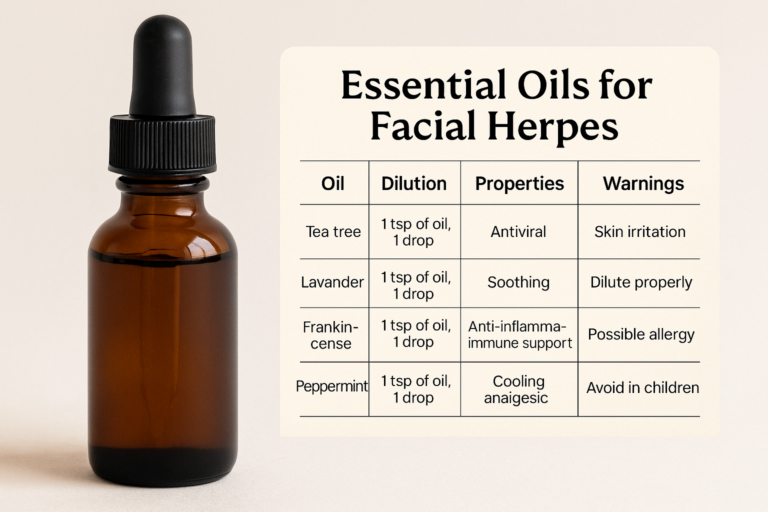Call us now:
USA News: Experts Share Holistic Strategies to Combat Rising Respiratory Illnesses and Boost Brain Health
Table of Contents
Welcome to the USA news section, today we want to talk about holistic strategies to combat rising respiratory illnesses and boost brain health
In the dawn of 2025, respiratory illnesses like COVID-19, influenza, and respiratory syncytial virus (RSV) are on the rise, as reported in the latest updates from the Centers for Disease Control and Prevention (CDC).
However, there’s more to this story than meets the eye. Experts are now emphasizing the deep connection between respiratory health and brain health, underscoring the need for a holistic approach to wellness.
In this article, we’ll explore how your lungs and your mind influence one another and how adopting integrative practices—ranging from mindful breathing to supportive nutrition—can help mitigate anxiety, stress, and cognitive decline.
Whether you’re facing cold and flu season head-on or striving to maintain emotional resilience, these strategies can be a cornerstone for a healthier 2025.
1. Understanding the Link Between Respiratory and Brain Health
Recent CDC reports highlight rising numbers in COVID-19 wastewater detections and increases in flu positivity, alongside RSV cases among both children and adults.
While these illnesses are well-known for their pulmonary impact, they can also affect cognitive and emotional well-being.
Why?
When respiratory issues reduce oxygen intake, the brain can suffer.
Studies indicate that low oxygen levels or constant respiratory distress can exacerbate or even trigger anxiety and depression.
In fact, anxiety disorders often coincide with conditions like asthma or chronic obstructive pulmonary disease (COPD).
This dual vulnerability underscores the necessity of a comprehensive plan to look after both your lungs and your mind.
Why Your Lungs Matter for Mental Well-Being
Decreased oxygen flow or chronic inflammation in the lungs can set off a chain reaction in the body, increasing stress hormones and putting extra strain on the cardiovascular system.
Over time, these physiological changes can negatively affect the prefrontal cortex, responsible for higher-level cognitive tasks, and ramp up activity in the amygdala, the brain’s fear and stress center.
Simply put, if your lungs can’t function optimally, your brain may respond by intensifying feelings of anxiety or brain fog.
This intricate link is exactly why prioritizing respiratory health can lead to improved mental well-being in 2025 and beyond.
2. Holistic Strategies for Respiratory and Brain Health
According to a recent USA news article on holistic health, experts recommend broadening our health perspective.
Instead of focusing solely on pharmaceutical treatments, we can add integrative methods to our daily routines that simultaneously bolster lung function and cognitive resilience.
2.1. Regular Physical Activity
Aerobic exercise—like brisk walking, jogging, or swimming—encourages deeper, more efficient breathing while improving cardiovascular strength.
This can help lower inflammation in the respiratory tract and stabilize stress hormones in the body.
On the other hand, activities such as yoga focus on gentle stretches and controlled breathing, thereby enhancing lung capacity and mind-body awareness.
- Boost in Endorphins: Physical activity promotes the release of endorphins, which improve mood and mental focus.
- Stress Management: Exercise routines can serve as a grounding practice that helps mitigate anxiety and depression symptoms.
2.2. Mindful Breathing Techniques
Practices like diaphragmatic breathing or alternate-nostril breathing not only expand your lung capacity but also have a proven impact on lowering cortisol levels—our primary stress hormone.
Mindful breathing can be particularly beneficial for individuals managing conditions like asthma or mild COPD, who often experience added mental strain when facing breathing difficulties.
As you strengthen your respiratory muscles with these methods, you simultaneously cultivate better emotional regulation.
By consciously slowing your breath, you signal the nervous system to relax, easing tension in both the body and mind.
2.3. Nutritional Support
Balanced nutrition is a game-changer for overall health, including respiratory and mental wellness.
Foods rich in antioxidants—like berries, nuts, and leafy greens—help counteract oxidative stress in the respiratory tract.
Meanwhile, adequate protein intake supports the immune system, vital for fighting off infections.
- Anti-inflammatory Diet: Incorporate fatty fish like salmon, mackerel, or sardines to harness the power of omega-3 acids in reducing inflammation linked to respiratory conditions.
- Hydration: Drinking enough water keeps mucus membranes moist, improving lung clearance and helping with cognitive clarity.
2.4. Quality Sleep
Sleep is fundamental for brain recovery and immune function.
The CDC warns that ongoing respiratory illnesses, such as RSV and flu, often exacerbate when individuals are sleep-deprived.
Aim for 7 to 9 hours of sleep nightly, and prioritize good sleep hygiene:
- Consistent Schedule: Go to bed and wake up at the same time daily to stabilize your internal clock.
- Screen-Free Wind-Down: Reducing screen exposure at least one hour before bedtime can enhance sleep quality and reduce anxiety.
3. Integrating Mental Health Practices
Protecting your respiratory system from infections is essential, but so is safeguarding your emotional resilience.
Experts stress that a truly holistic approach to respiratory health must also include mental and emotional strategies.
3.1. Mindfulness and Meditation
According to the American Psychological Association, consistently practicing meditation yields remarkable benefits in strengthening the prefrontal cortex—the region of your brain responsible for planning, decision-making, and emotional regulation.
Simultaneously, it decreases activity in the amygdala, helping you stay calm under stress.
Dedicating 10 to 20 minutes daily to guided meditations or mindfulness exercises can significantly improve attention span, cognitive abilities, and overall mental well-being.
Think of it as a double win: A calmer mind may even help you navigate respiratory symptoms more effectively, as anxiety levels fall and breathing becomes more controlled.
3.2. Building Social Connections
In periods of heightened respiratory risk, such as winter months, it’s easy to slip into social isolation.
Nevertheless, community support is a powerful shield against mental decline.
Regular video calls with friends and family, engaging in virtual hobby groups, or responsibly attending community gatherings (when possible) fosters emotional support.
Experts also note that a simple text check-in or phone call can alleviate anxiety, remind you to stick to health guidelines, and encourage a positive mindset.
3.3. Strategic Planning and Personal Goals
Setting personal goals allows you to focus on purpose rather than health anxieties.
Whether you aim to learn a new skill, advance in your career, or adopt a healthier lifestyle, having a tangible plan can redirect attention from ruminating on respiratory illnesses.
Start by breaking major goals into smaller milestones; each small success keeps motivation high and stress lower.
4. How Can I Avoid Anxiety in Uncertain Times?
Anxiety often stems from feeling helpless in the face of rising health threats.
Counter that by:
- Spending Time in Nature: Even a short 20-minute walk in a park can lower cortisol levels and restore calm. It’s a natural way to support both emotional and respiratory health.
- Establishing Boundaries: Limit exposure to alarmist news and set up technology-free zones at home to prevent media overload.
- Self-Care Rituals: From aromatherapy to warm baths, find daily routines that soothe the senses and encourage mental tranquility.
Additionally, consider professional help—such as counseling or therapy—if your worries become unmanageable.
Tackling anxiety early can protect both your mental acuity and your physical health, especially during peak seasons of respiratory infections.
5. The Best Ways to Manage Stress Holistically
Stress management involves more than just “positive thinking.”
It requires a menu of effective actions:
- Nurture Hobbies: Engaging in painting, gardening, or crafting can refocus your mind, reduce rumination, and supply a sense of accomplishment.
- Professional Guidance: If stress feels unrelenting, consult a mental health professional. Therapy or coaching provides strategies tailored to your lifestyle.
- Community Resources: Many communities offer workshops or support groups focusing on respiratory illnesses, stress, and mental health. Combining social support with expert advice is often a potent remedy.
When you effectively manage stress, your immune system tends to function better, making you less susceptible to complications from respiratory infections.
6. Enhancing Personal Branding Through Wellness
A strong mental state positively influences how you present yourself to the world.
Balanced individuals often demonstrate higher productivity, better communication skills, and resilience—key factors in shaping a strong personal brand.
In an era where remote work and digital presence are increasingly normalized, investing in your health can yield long-term benefits, personally and professionally.
7. Prioritize Your Health and Well-Being in 2025
As respiratory illnesses like COVID-19, flu, and RSV continue to challenge the nation, it’s crucial to adopt an integrative strategy—one that simultaneously protects your lungs and fortifies your mental resilience.
Whether you’re practicing mindful breathing, adjusting your diet, or seeking social connection, every step you take toward holistic care yields dividends in brain health and emotional balance.
If you’re ready to receive tailored guidance for your unique situation, we encourage you to consult with a brain health expert.
Click here to schedule your appointment and embark on a personalized journey to better mental and respiratory health.
Remember that meditation can be your trusted ally:
- It strengthens the prefrontal cortex, improving decision-making and emotional regulation.
- It decreases activity in the amygdala, minimizing stress and anxiety responses.
- It enhances attention and cognitive abilities, fostering mental clarity and overall wellness.
Let’s make 2025 the year we all embrace holistic well-being—Breathe, Heal, Evolve.
For more tips and guidance, subscribe to The Brain Care Podcast and stay in the loop by following our blog.
With proactive care and community support, we can create a healthier, more fulfilling life for ourselves and those around us.
Bibliography
- Centers for Disease Control and Prevention (CDC). “Respiratory illness activity high nationally,” December 27, 2024.
- US News Article on Holistic Health. “USA News: Experts Share Holistic Strategies to Combat Rising Respiratory Illnesses and Boost Brain Health.”
- The American Psychological Association on Mindfulness and Anxiety.
Source of the News (CDC Update):
https://www.cidrap.umn.edu/covid-19/cdc-respiratory-illness-activity-high-nationally
USA News: Bird Flu Urgent Tips for Boosting Brain Health Amid Concerns in 2025



